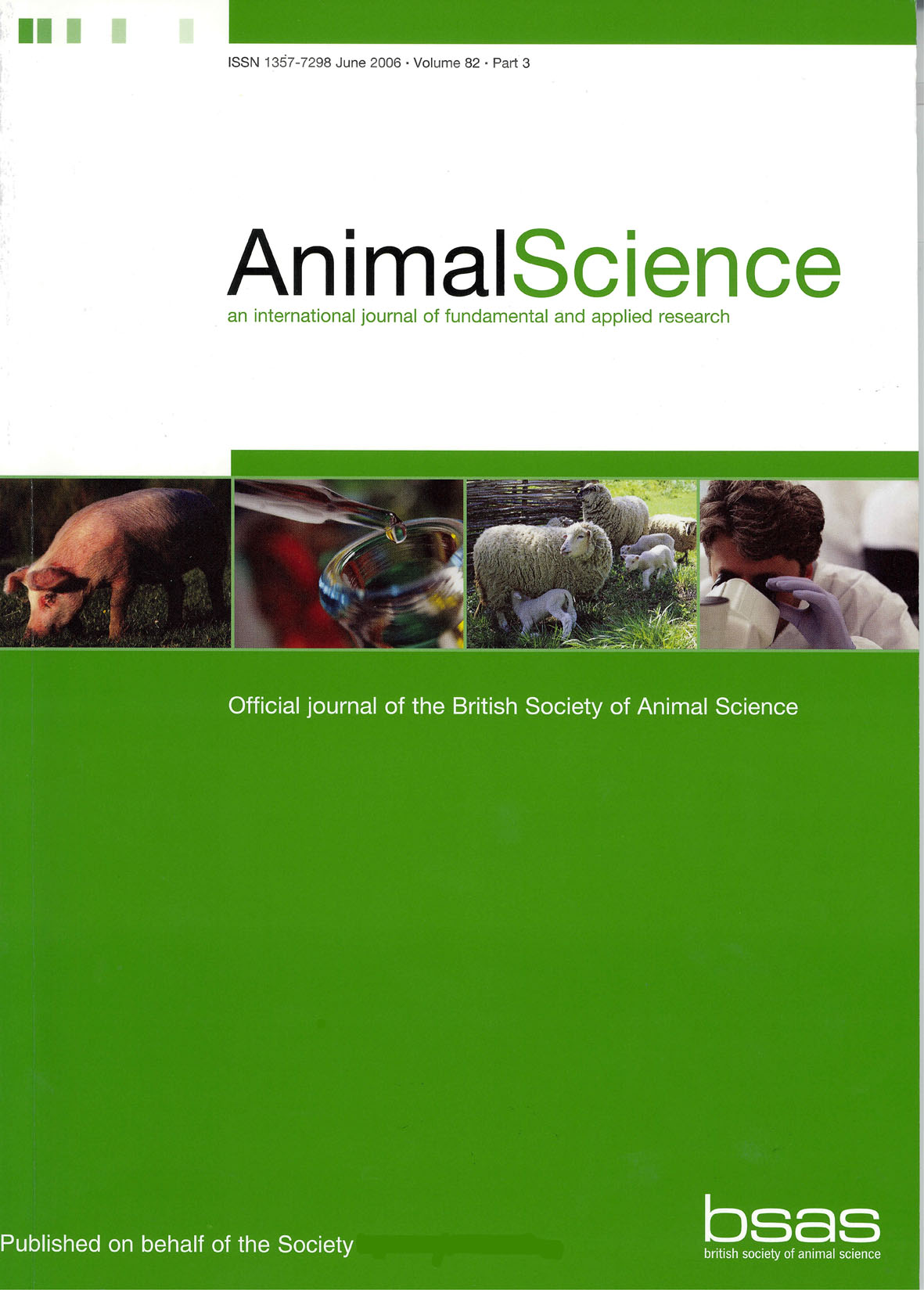Article contents
Effects of exogenous bovine somatotropin on milk yield and pasture intake in dairy cows of low or high genetic merit
Published online by Cambridge University Press: 02 September 2010
Abstract
The effect of recombinantly derived bovine somatotropin (bST) treatment on milk production and pasture intake was examined in 16 New Zealand Friesian cows from low or high genetic merit (breeding index) selection lines. Recombinantly derived bST was administered by 2-weekly injection of a controlled release formulation for a period of 4 weeks (weeks 16 to 19 of lactation) at a dose rate equivalent to 50 mg/day. During this period the animals were housed for 18 days with food intake being measured over the last 8 days. Treatment with bST resulted in significantly higher yields of milk, fat and protein compared with the controls. Cows from the low breeding index (LBI) line were more responsive to exogenous bST than cows of the high breeding index (HBI) line in both milk and fat yield. Milk composition was not affected by bST treatment. There was a significant increase of proportionately 0·108 in intake of freshly cut pasture between bST-treated and untreated animals during days 16 to 23 of treatment. Thus, no significant difference in calculated energy balance was observed between the bSTtreated and untreated cows. This study indicates that the genetic background of cows may be an important determinant of their response to bST treatment and that such treatment rapidly alters voluntary intake in pasture-fed cows.
- Type
- Research Article
- Information
- Copyright
- Copyright © British Society of Animal Science 1990
References
REFERENCES
- 12
- Cited by


